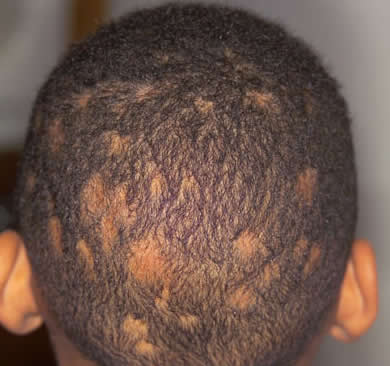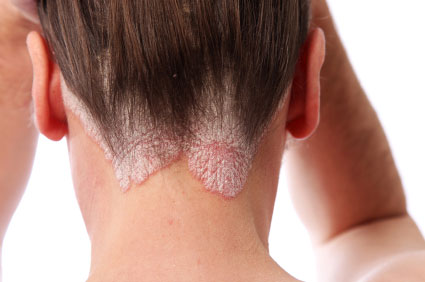… Continued …
Psoriasis
Contact Dermatitis
What else?

* Scalp ringworm picture, credit to Mayo
Thinning hair and itchy scalp may also be associated with the following factors /conditions:
- Scalp ringworm, a fungal infection that affects scalp and hair shafts. It can lead to round patches that grow larger slowly, covering more areas on the scalp! The bald-looking patches can also be quite itchy.
- Lupus, an inflammatory condition associated with the abnormality of immune system function. Itchy scalp can be one of the symptoms. The effect of this autoimmune disorder can be systemic, and therefore sometimes it affects the scalp, too.
- Underactive thyroid (hypothyroidism), a condition of when thyroid glands work poorly. As a result, hormones produced by these glands don’t meet to the body needs. This causes some complications, and hair loss can be one of the symptoms. A few people with hypothyroidism experience hair loss, and their scalp is also quite itchy.
- The side effect of particular medications.
Article sources:
- http://www.nhs.uk/Conditions/Dandruff/Pages/Treatment.aspx
- http://www.mayoclinic.org/diseases-conditions/folliculitis/basics/definition/con-20025909
- http://www.americanhairloss.org/types_of_hair_loss/alopecia_areata.asp
- http://www.niams.nih.gov/Health_Info/Psoriasis/
- https://www.aad.org/dermatology-a-to-z/diseases-and-treatments/a—d/contact-dermatitis
On September 11, 2017





